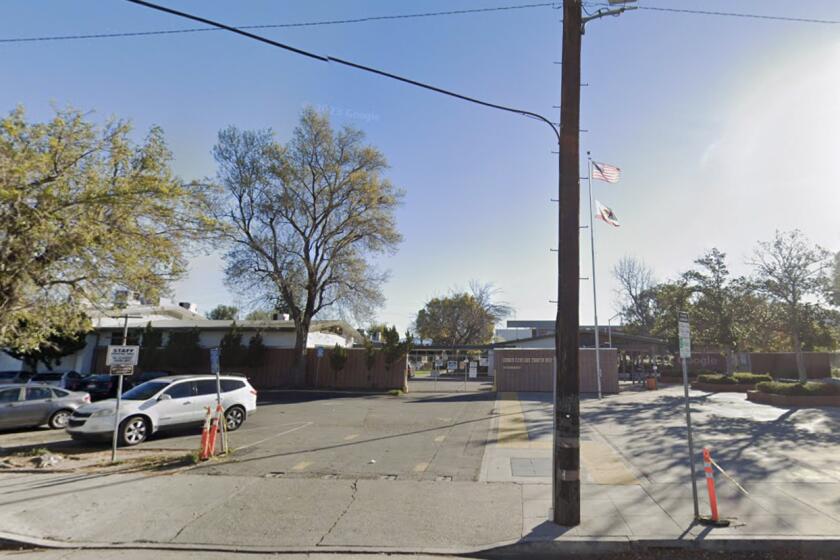Hurdle to stem cell funds cleared
The California Supreme Court gave final clearance Wednesday to California’s landmark $3-billion stem cell research effort, declining to hear an appeal of two lower court rulings upholding the constitutionality of 2004’s Proposition 71.
“This is the end of the road,” said Dana Cody, executive director of the Life Legal Defense Foundation, which represents two of the taxpayer and religious groups that sued.
Experts agreed that the plaintiffs had exhausted legal challenges, at least as far as the funding is concerned.
“Although some might think the U.S. Supreme Court could have a majority of justices unsympathetic to embryonic stem cell research, there is no plausible federal law claim in their case for the Supreme Court to hear,” said Hank Greely, a Stanford University law professor who specializes in health law and bioscience.
The state is expected to issue the first of $3 billion in voter-approved bonds by July. The lawsuit did not prevent the state from issuing the bonds, but in practice the cloud it cast made a sale unfeasible until now.
“At this point, they could file challenges against some action we take as a board,” said Robert Klein, author of Proposition 71 and chairman of the state stem cell institute oversight committee. “But what’s critical to understand is they can’t stop the research. The future for the next decade is assured for California and for medical research.”
Though deprived of bond funding, the voter-created California Institute for Regenerative Medicine has not stood still for the last two years. Cobbling together a $150-million state loan arranged by Gov. Arnold Schwarzenegger and $50 million in loans from California philanthropists, the institute has awarded $158 million in grants, making California the world’s leading funder of human embryonic stem cell research, experts say.
“We’re ahead of everybody else, and we’ll stay ahead of everybody else,” Greely said.
The state and private loans had been made with the understanding that if the institute did not prevail in the lawsuits, they would not be repaid. Klein said proceeds from the first bonds issued will go to repayment.
The bonds will provide up to $350 million a year for 10 years. By comparison, the U.S. government spends about $30 million a year on human embryonic stem cell research and restricts grants to just a handful of human embryonic stem cell lines.
President Bush, prompted by moral concerns about destruction of embryos during such research, imposed the restrictions in August 2001.
The Bush mandate, which scientists say hampers research, prompted Klein to craft Proposition 71, officially known as the California Stem Cell Research and Cures Act.
Even if the next president lifts the Bush mandate, as he or she is widely expected to do, cutbacks in scientific funding overall make it unlikely that the federal government will match California’s spending, experts agree.
And even recent attempts in the House of Representatives to lift the restrictions barred funding for a certain type of research: somatic cell nuclear transfer, or therapeutic cloning, which California’s program allows.
The process uses unfertilized eggs rather than discarded embryos from fertilization clinics. The genetic material is removed from the eggs, replaced by the genetic material from a patient’s cell and coaxed into dividing as if it had been fertilized. The reconstructed egg is then allowed to develop to the embryo stage.
If the procedure is successful -- no scientist has yet pulled this off using human eggs -- stem cell lines derived from the process are genetically identical to the patient’s.
“I don’t think people realize that basically what’s happening is fetal farming,” said Cody of the Life Legal Defense Foundation “You’re creating life to experiment with it and ultimately destroy it.”
Other critics who were not part of the lawsuits expressed reservations not about the research itself but about the voter-created institute and its citizen oversight committee’s accountability to taxpayers. That issue has been taken up in a bill sponsored by state Sens. Sheila Kuehl (D-Santa Monica) and George Runner (R-Lancaster).
Jesse Reynolds of the Oakland-based Center for Genetics and Society pointed to a recent grant the institute approved for a Los Angeles-based research center whose founding president, a South Korean fertility expert, is embroiled in an international dispute over authorship of a medical journal article.
“I don’t think that the institute is ready to fund at the level of $300 million a year,” he said.
*
More to Read
Start your day right
Sign up for Essential California for news, features and recommendations from the L.A. Times and beyond in your inbox six days a week.
You may occasionally receive promotional content from the Los Angeles Times.






